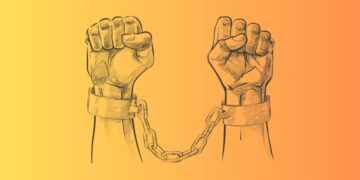Viagra, the brand name for sildenafil citrate, is a medication used to treat erectile dysfunction and pulmonary arterial hypertension. It helps men who can’t achieve or sustain an erection due to erectile dysfunction, to improve their erectile response when already sexually stimulated. Viagra only works when there is a sexual arousal, and it does not provide sexual stimulation. It is taken by mouth or injection into a vein. Onset is typically within 20 minutes and lasts for about 2-4 hours, varying from one man to another.
How Viagra works
Viagra is used treat erection problems, by causing an effect on the blood flow to the penis. Erectile dysfunction is majorly caused by restriction of blood flow. In order for an erection to occur, there must be sufficient blood within the penis. The active ingredient in Viagra, a chemical called sildenafil, works by relaxing the muscles in the walls of blood vessels in certain areas of the body.
When there is a sexual simulation, the nervous system in the erectile tissue of the penis releases nitric oxide, which stimulates an enzyme, phosphodiesterase 5 (PDE5), that produces messenger cyclic guanosine monophosphate (cGMP). The cGMP causes dilation of the arteries in the penis, resulting in the arteries and the erectile tissue filling with blood. The outcome is achieving an erection. To sustain an erection, Viagra prevents cGMP from becoming degraded, so the blood flow and the erection can continue.
Dosage
The dosage is different when taken for erectile dysfunction or for pulmonary arterial hypertension.
- Viagra: For erectile dysfunction, Viagra comes in blue, diamond-shaped pills, in doses of 25, 50, or 100 mg. Take a maximum of one pill in a 24-hour period, 30 minutes to 1 hour before sexual intercourse.
- Revatio: For pulmonary arterial hypertension, Viagra comes in white, round, film-coated tablets. Take one 20-mg Revatio tablet three times a day.
Viagra overdose
Viagra overdose can be fatal when taken more than the standard dosage. Deaths from Viagra overdose are rare but possible. Symptoms of an overdose might include:
- Vomiting.
- Prolonged priapism – prolonged erection.
- Blindness.
- Rhabdomyolysis – break down of muscles.
- Diarrhea.
- Optic neuropathy – damage to the optic nerve.
- Tachycardia (increased heart rate).
- Blurred vision and distorted vision.
- Papilledema – swelling in the optic nerve.
People who should not take Viagra
The following people should not take Viagra.
- People on nitric oxide donors, organic nitrites and nitrates such as nitroglycerin (glycerin trinitrate).
- People with kidney disease.
- Individuals with low blood pressure (hypotension).
- Those who have had a recent heart attack or stroke.
- Men who are advised to refrain from sexual intercourse because of cardiovascular risk factors.
- People with cardiovascular disease.
- People with severe liver impairment.
- Individuals with hereditary degenerative retinal disorders.
- People who are allergic to sildenafil, as contained in Viagra and Revatio, or any of the ingredients in Viagra.
When you should seek medical attention
You should see a doctor immediately if you experience the following effects after ingesting Viagra.
- Chest pains.
- A painful erection.
- A prolonged erection which lasts for more than 4 hours.
- A decrease or loss of vision.
- A serious skin reaction.
- Seizures or fits.
- Allergic reaction to Viagra, such as:
- Wheezing.
- Breathing problems.
- Swellings of the face, mouth or throat.
- Dizziness.
Side effects
Viagra is known to cause temporary, mild and severe side effects in some men.
Very common side effects
Side effects affecting at least 1 in 10 men who take the drug.
- Headache
- Heartburn
Common side effects
Side effects affecting at least 1 in 100 men who take the drug.
- Nausea.
- Facial flushing.
- Hot flushes.
- Indigestion.
- Nasal congestion.
- Dizziness.
- Visual disturbance, such as blurred vision or a blue tinge to your vision (cyanopsia).
Uncommon side effects
Side effects affecting 1 in more than 100 men who take the drug.
- Visual symptoms such as redness, pain, impaired vision, photophobia or sensitivity to light.
- A rapid heart rate or changes in your blood pressure.
- Stomach upsets.
- Muscle aches.
- Blocked or runny nose.
- Ringing in the ears.
- Rashes.
Rare side effects
Side effects affecting 1 in 1000 men who take the drug.
- Priapism – a painful prolonged erection that can lead to damage to the penis.
- Eye changes – such as double vision, bleeding at the back of the eye, swelling of the eye or eyelid.
- A drop in blood pressure leading to fainting, stroke or a heart attack.
- Decrease in blood supply to the optic nerve, causing sudden vision loss.
- Nonarteritic anterior ischemic optic neuropathy, or damage to the optic nerve.
- Irregular heartbeat.
- numbness or swelling in your mouth, throat or nose.
- Bleeding from the penis.
- Hearing difficulties/loss.
- Feeling irritable.
- Increased intraocular pressure.
- Ventricular arrhythmias.
How to avoid side effects
The side effects from Viagra can be minimized by taking the following steps.
- Get a prescription from a qualified doctor: Your doctor should be able to check your condition and the suitability of using Viagra.
- Don’t drink too much alcohol: Alcohol increases the risk of certain side effects, such as low blood pressure, dizziness and also reduces your ability to get an erection.
- Don’t take more Viagra than you have been prescribed: Overdosing can be very serious and may even lead to death.
- Don’t mix Viagra with recreational drugs: Some illegal or ‘legal high’ drugs interact with Viagra and taking them can be dangerous.
- If you experience side effects, try a lower dosage: You can also take the Viagra with food, though it will take longer to take effect, but it will less likely to cause certain side effects.
- People who have HIV and take protease inhibitors: They should ensure that they take no more than 25 milligrams (mg) of Viagra at a time, and not more often than every 48 hours.
- People who take alpha-blockers: They should ensure that they take Viagra at least 4 hours before or after taking alpha-blockers, in order to prevent dangerously low blood pressure.





































































































































































































I know someone who takes the blue one for a heart condition, was prescribed to her by a heart doctor.